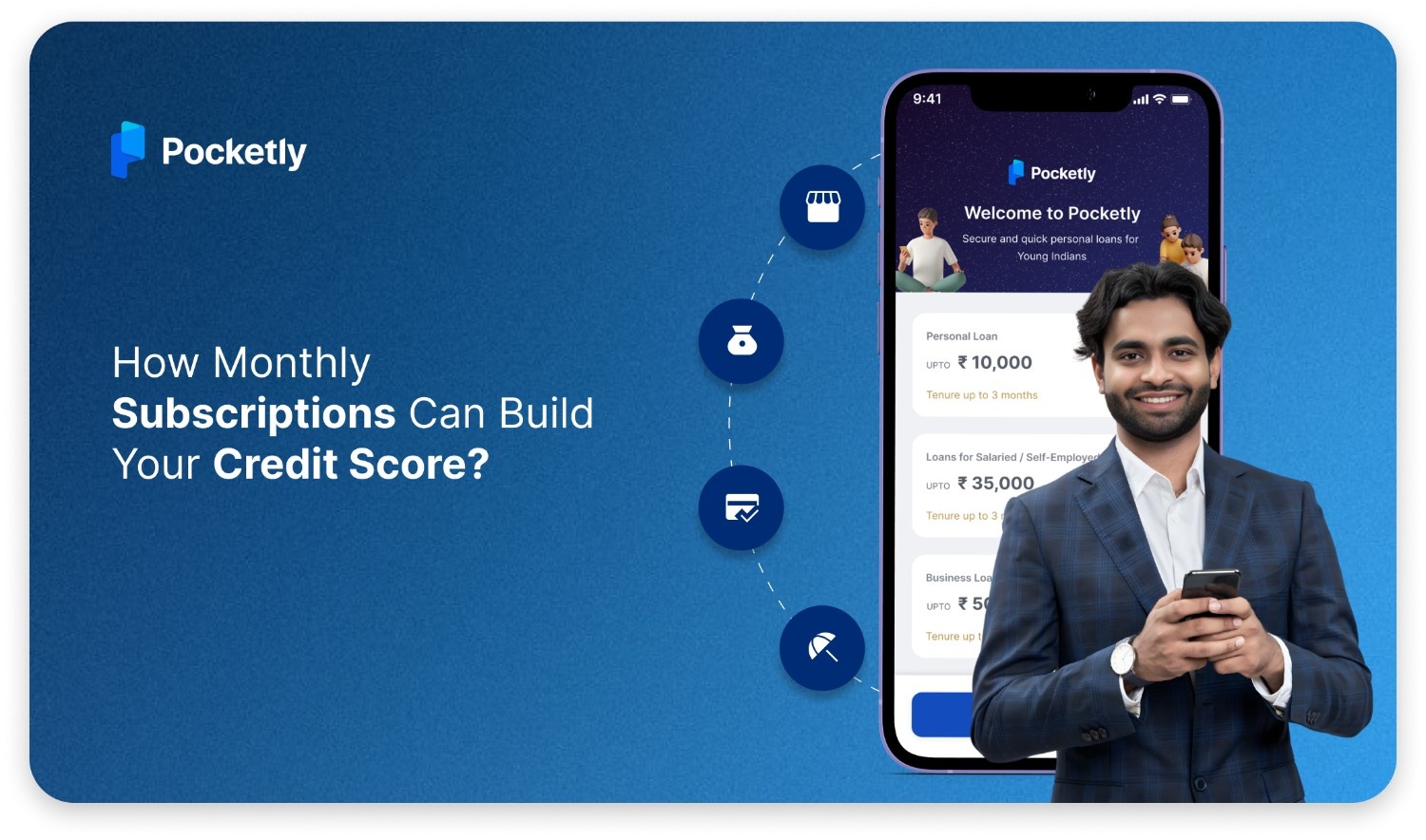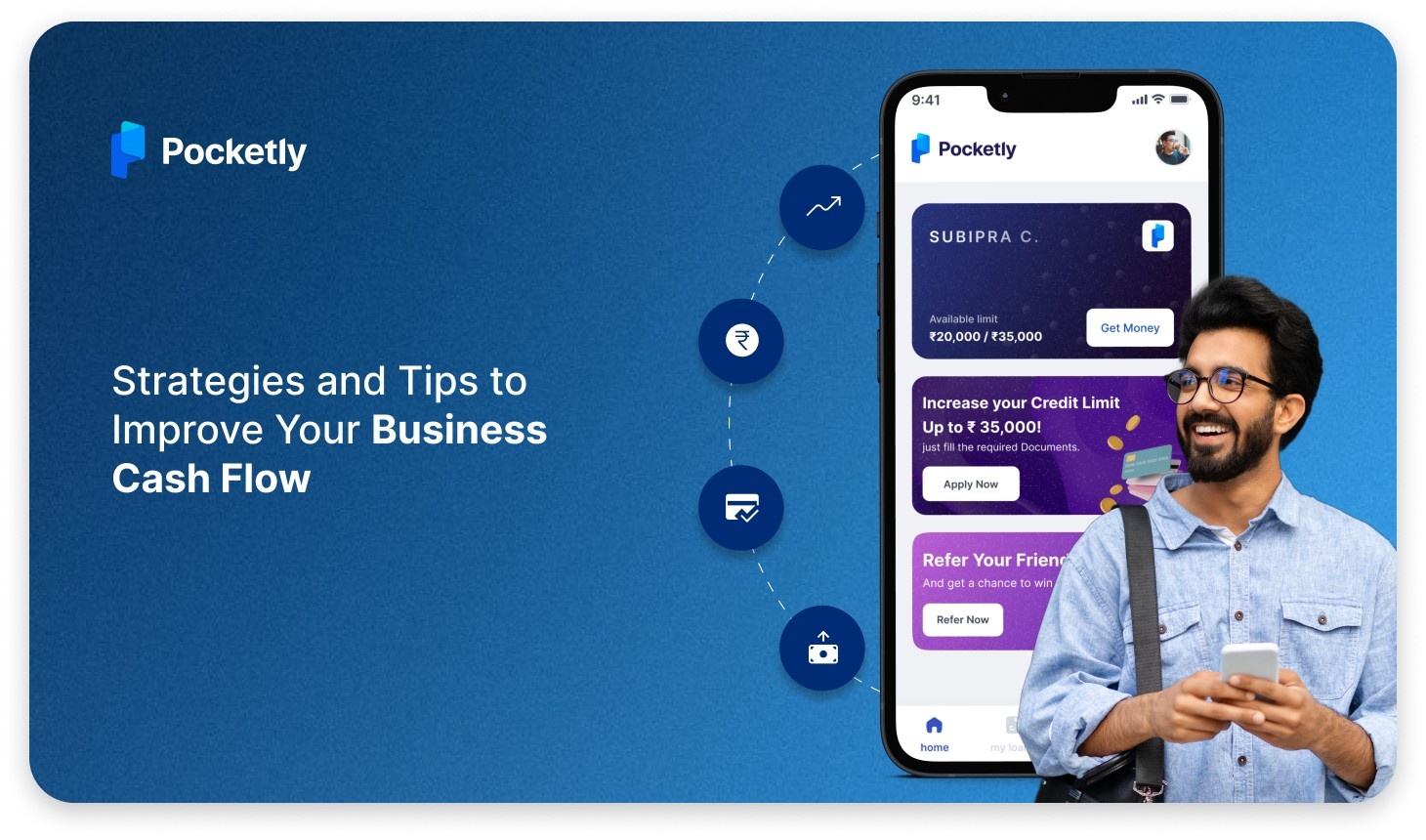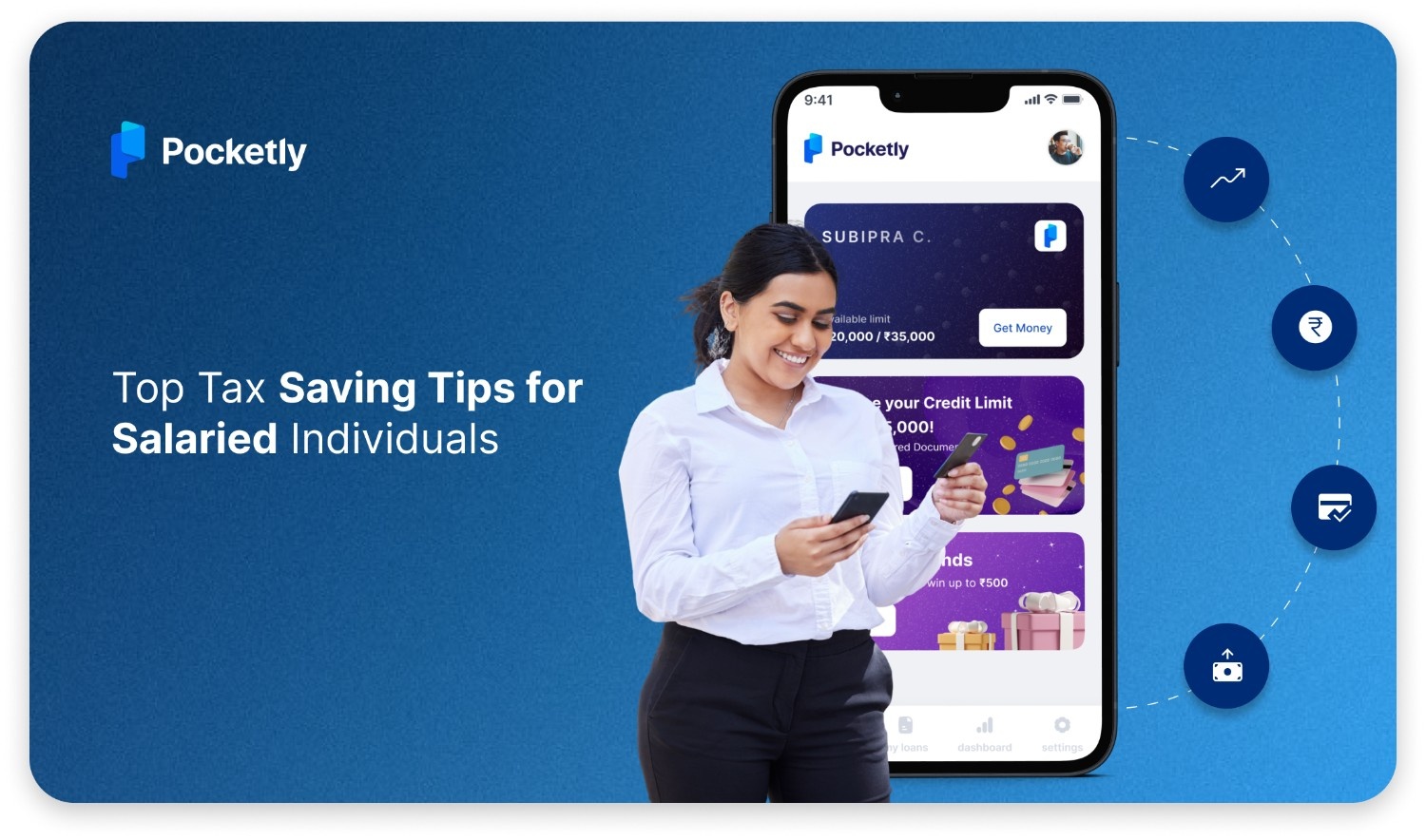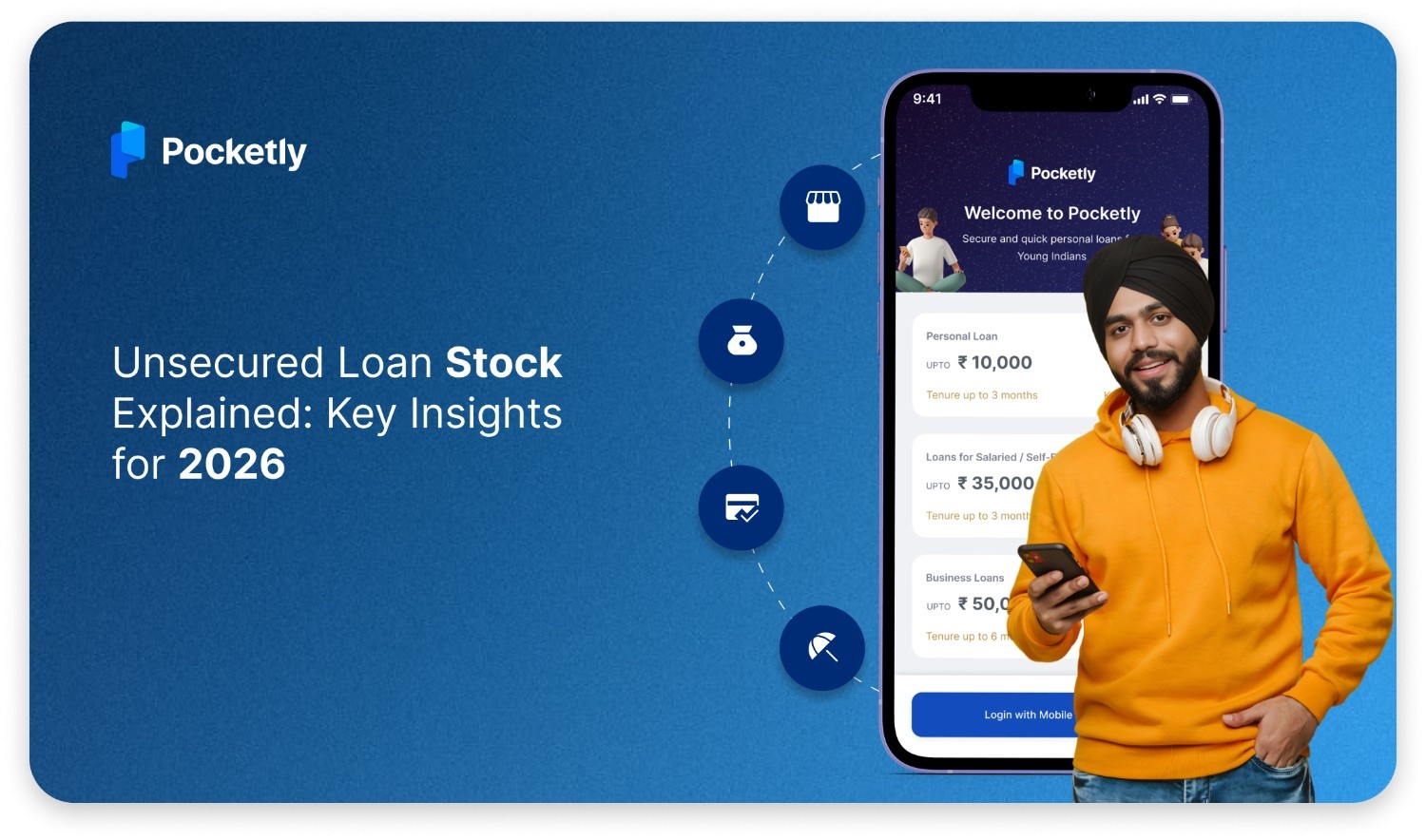Did you know that a single financial decision can significantly impact your credit score? While many of us focus on paying off debts, not all decisions related to our finances work in our favour when it comes to credit score. One such decision is to cancel a personal loan.
Your credit score plays a pivotal role in your financial life. It affects everything from your eligibility for a mortgage to the interest rates you’ll pay on a new loan. As credit scores are increasingly relied upon for making important financial decisions, understanding their nuances has never been more crucial.
In this blog, we’ll take a closer look at how cancelling a personal loan can impact your credit score. Whether you’re considering cancelling a loan or just curious about how it might affect your financial standing, this post will help you make informed choices about managing your credit.
What Happens When You Cancel a Personal Loan?
A personal loan cancellation occurs when you decide to close or terminate a loan before the full repayment term is completed. This can happen for several reasons, such as choosing to pay off the loan early or cancelling the loan agreement entirely before the funds are disbursed. Essentially, it means that the lender agrees to release you from the loan contract, and you're no longer obligated to make future payments.
The process of cancelling a personal loan can vary depending on the lender, but generally, the steps involved are as follows:
- Contact the Lender: You’ll need to reach out to your lender to inform them of your decision to cancel the loan. Some lenders may require a formal request in writing.
- Review the Terms: Carefully check the loan terms to ensure you’re not violating any conditions. Some loans may have early repayment penalties or other fees associated with cancellation.
- Complete the Cancellation Forms: Many lenders will ask you to fill out specific cancellation forms or paperwork.
- Return Funds (If Already Disbursed): If the loan amount has already been disbursed to you, you may be required to return the full loan amount or pay off any portion already received.
- Receive Confirmation: Once the cancellation is processed, ask for written confirmation that your loan has been officially cancelled.
Once you've completed these steps and cancelled your loan, it’s important to understand how this decision could impact your credit score. The effects of personal loan cancellation can be immediate and significant, so let's explore how your credit report may be affected as a result.
Factors Influencing the Impact on Your Credit Score
When you cancel a personal loan, the impact on your credit score isn’t always straightforward. Several factors come into play that can either boost or harm your score. Let’s break down some key elements that influence how your credit score may react after cancelling a loan:
1. Hard Inquiries
Each time you apply for a loan, the lender performs a "hard inquiry" or "hard pull" on your credit report. While this is typically done when you first apply, if you cancel the loan before disbursement, the hard inquiry remains on your credit report. This can slightly affect your credit score because multiple hard inquiries within a short time can suggest to lenders that you're seeking excessive credit, which may indicate financial instability.
However, the effect of a single inquiry is generally minor and temporary, lasting only a few months. But if you frequently apply for and cancel loans, the cumulative effect can become more noticeable.
2. Credit Utilisation Ratio
Your credit utilisation ratio is the amount of credit you're using compared to your total available credit. This ratio plays a significant role in determining your credit score. When you cancel a personal loan, particularly one with a large credit limit, you may see a change in this ratio.
If you close a loan with a sizeable credit limit, your overall available credit might decrease, which could increase your credit utilisation ratio, potentially lowering your score. On the other hand, if the loan balance is high relative to your credit limit, cancelling the loan could reduce your debt load and lower your credit utilisation, improving your score.
3. Account Age and Mix
Credit scoring models also take into account the age of your credit accounts and the diversity of your credit mix. When you cancel a loan, especially if it’s one of your older accounts, it can reduce the average age of your credit history, which can negatively affect your score.
Moreover, cancelling a loan may reduce the diversity of your credit mix. A good mix of credit types (credit cards, personal loans, mortgages, etc.) can improve your credit score. If you cancel a personal loan and have limited other credit types, it might harm your credit mix, leading to a potential dip in your score.
Now that you understand the factors that influence your credit score when cancelling a loan, it's essential to look at the process. Let's explore the different stages of personal loan cancellation and how each can impact your credit journey.
Stages of Personal Loan Cancellation
When it comes to cancelling a personal loan, there are distinct stages that could affect your credit score differently. Let's break down the different points at which a loan can be cancelled and each stage's impact on your credit profile:
1. Cancellation After Application Submission and Its Impact
The process of cancelling a loan right after you’ve submitted your application but before it has been approved or disbursed can have minimal impact on your credit score. At this stage, the lender will typically perform a hard inquiry on your credit report to assess your eligibility. While this inquiry remains, the absence of any loan disbursement means there are no new financial obligations recorded, making the overall impact on your credit score less significant.
However, it’s important to note that future lenders can still see a canceled application when they review your credit history. They may wonder why you applied and then cancelled, although it won’t heavily affect your score unless done frequently.
2. Cancellation Before Loan Disbursement
Cancelling a loan before the funds are disbursed means you’re avoiding any immediate debt or credit usage. In this case, the loan application is essentially abandoned, and no money changes hands. While the hard inquiry from your loan application will still appear on your credit report, your overall credit utilisation and account balances remain unaffected.
This is one of the best scenarios for cancelling a loan if you’re concerned about how it might impact your credit score. Since no loan was disbursed, you won’t have to worry about the debt increasing your credit utilisation ratio or affecting your payment history.
Also Read: Apply for an Instant Personal Loan Online in 2 Minutes
3. Options and Limitations of Cancellation After Disbursement
Cancelling a loan after the disbursement of funds is a more complicated process and can have a more significant impact on your credit score. Once the loan has been disbursed, the loan balance appears on your credit report, which affects your credit utilisation and overall debt-to-income ratio. If you choose to cancel the loan after disbursement, you may be required to pay back the full loan amount immediately or within a short timeframe, which can strain your finances.
Moreover, depending on the loan agreement, you may face penalties or additional fees for early repayment. These fees, while not directly affecting your credit score, could create financial strain, leading to missed payments or higher debt levels that ultimately affect your score.
The stage at which you cancel your personal loan can significantly influence its impact on your credit score. Now it’s important to understand the reasons behind loan cancellations. Let’s take a look at some of the common factors that may lead individuals to cancel their personal loans.
Common Reasons for Canceling Personal Loans
There are several reasons why individuals might consider cancelling a personal loan, and understanding these reasons can help you decide whether it's the right choice for you. Let's explore some of the most common scenarios where personal loan cancellation becomes a viable option:
1. Better Loan Offers or Terms
One of the most common reasons for cancelling a personal loan is receiving a more favourable loan offer. Whether it’s a lower interest rate, more flexible repayment terms, or a larger loan amount, a better deal can prompt you to cancel an existing loan and switch to a more beneficial option. Financial markets are constantly shifting, and if you find an opportunity that’s better suited to your needs, it may be worth considering a cancellation.
2. Change in Financial Situation
Life is unpredictable, and changes in your financial situation, such as a new job, unexpected expenses, or changes in income, can make an existing loan unnecessary or too burdensome. If your circumstances change, you might decide to cancel your loan to avoid unnecessary debt or repayment strain. For example, if you’ve secured a higher-paying job or received a financial windfall, you may no longer need the loan, and cancelling it could give you more control over your finances.
3. Improvement in Credit Score
When your credit score improves significantly, you may be able to access better financing options, such as a credit card with a lower interest rate or a new loan with more favourable terms. In this case, you might choose to cancel the personal loan in favour of better alternatives. Additionally, an improved credit score might give you better access to funds through more traditional credit lines, negating the need for a personal loan.
Also Read: How to Download and Check Your CIBIL Report Online
4. Unfavorable Loan Terms or Conditions
If you find that the loan terms are not as favourable as initially understood, such as hidden fees, early repayment penalties, or an unreasonably high interest rate, you may consider cancelling the loan. This is especially relevant if you feel that the terms no longer suit your financial goals or are putting a strain on your monthly budget.
5. Duplicate Loans or Overborrowing
Sometimes, individuals may apply for multiple loans to cover various expenses, only to realise that they’ve overborrowed. If you have multiple loans and realise that one isn’t necessary, cancelling the loan can help reduce your debt load and improve your financial standing. Reducing the number of outstanding loans can make it easier to manage finances and improve your credit score in the long term.
While understanding the reasons for loan cancellation is crucial, it's equally important to grasp how they affect your credit score. Now, let’s look at some best practices that help mitigate negative impacts.
Best Practices to Mitigate Negative Impacts
While cancelling a loan can have consequences, following these best practices will help you manage your credit score effectively and minimise any negative impacts. Let's look at each best practice in detail.
1. Timing of Cancellation
One of the most important factors to consider when cancelling a loan is the timing. Canceling your loan at the right moment can help reduce any negative effects on your credit score. If you’re planning to apply for other forms of credit soon after, it might be worth delaying the cancellation to avoid an additional hard inquiry during a time of financial scrutiny.
Proper timing can make a significant difference in preserving your credit score. Here are some tips to consider for optimal timing:
- Consider your credit activity: Avoid cancelling loans when you’re about to apply for a mortgage, car loan, or other major credit.
- Financial stability: Make sure your credit profile is in good shape with a healthy credit utilisation ratio and a strong payment history before making the cancellation decision.
- Strategic timing: If you're planning to improve your credit score over time, try to cancel the loan during a period of fewer financial obligations or loan applications.
2. Monitoring Credit Reports Regularly
Keeping track of your credit reports after cancelling a loan is an essential practice to ensure that no mistakes are made during the process. Errors on your credit report can affect your credit score, so it’s important to remain vigilant and correct them promptly.
Monitoring your credit report regularly can help you identify any discrepancies early and take corrective actions before they affect your credit health. Here's how you can stay on top of your credit reports:
- Stay proactive: Regularly check your credit reports to spot any errors related to the cancelled loan.
- Free credit reports: You're entitled to a free credit report from the three major bureaus annually, so use this resource to stay informed.
- Correct discrepancies: If you find any errors, contact the credit bureaus and lenders to have them resolved quickly.
3. Responsible Credit Management
Managing your credit responsibly after cancelling a loan is crucial to ensuring that your credit score stays strong. This means being diligent about making on-time payments, keeping your credit card balances low, and not over-extending yourself financially.
A responsible approach to managing your credit will ensure that you can recover from the loan cancellation without it negatively affecting your financial health. Here’s how to manage your credit post-cancellation:
- Pay bills on time: Timely payments are crucial for keeping your credit score intact. Any missed payments can significantly harm your score.
- Low credit utilisation: Aim to keep your credit card balances below 30% of your available credit to avoid negatively impacting your credit score.
- Avoid new debt: Limit unnecessary borrowing after cancelling a loan to maintain control over your finances.
Also Read: What is Debt Trap and How to Avoid It?
4. Diversifying Your Credit Mix
After cancelling a loan, your credit mix may change, which can impact your credit score. A diverse mix of credit types, such as credit cards, mortgages, and personal loans, can help maintain a healthy credit profile.
If your credit mix has become too limited after cancelling a loan, you might consider diversifying it to boost your credit score. Consider these steps to improve your credit mix:
- Add new credit types: Consider applying for a different type of credit, such as a secured credit card or a small personal loan.
- Maintain a balanced profile: Ensure that you have a mix of revolving credit (credit cards) and installment loans (personal loans or mortgages).
- Long-term benefits: A healthy credit mix demonstrates to lenders that you can manage various forms of credit responsibly.
5. Avoid Multiple Loan Applications
Each time you apply for a loan, it generates a hard inquiry on your credit report. Too many hard inquiries within a short period can lower your credit score, so it’s crucial to avoid submitting multiple loan applications immediately after cancelling one. Space out your applications and only apply for credit when absolutely necessary to protect your credit score from unnecessary dips. Here’s how to limit your credit applications:
- Limit applications: Apply for new credit only when you really need it to avoid unnecessary hard inquiries.
- Give time between applications: Space out your credit applications to avoid multiple inquiries in a short period.
- Strategic loan applications: Focus on applying for credit that aligns with your financial goals, and avoid impulse applications.
By following these best practices, you can safeguard your credit score after cancelling a personal loan. Once you’ve cancelled a personal loan and taken steps to manage your credit score, you may want to consider reapplying for a loan in the future.
In this section, we’ll explore how to approach the reapplication process wisely, ensuring you’re in the best possible position to secure the loan you need.
Reapplying for a Personal Loan
After cancelling a loan, you may need to apply for a new one at some point. Whether it's for a larger loan amount or a more favourable interest rate, reapplying for a personal loan requires careful planning. Here are key factors to consider before submitting your next application:
1. Timing Your Loan Reapplication
It’s crucial to choose the right time to reapply for a personal loan. If your credit score has taken a hit due to recent cancellations, it might be wise to wait until your credit profile improves. Giving yourself time to recover from hard inquiries and debt reductions will increase your chances of getting a loan with better terms.
Here are some considerations for timing:
- Wait for credit recovery: Wait until your credit score improves before reapplying to secure better loan terms.
- Monitor your credit report: Check for any errors and ensure your credit history reflects your responsible credit behaviour.
- Avoid applying too soon: Give yourself time after a cancellation or hard inquiry to reduce the chances of being denied.
2. Reviewing and Understanding Your Credit Score
Before reapplying for a loan, it’s important to understand where you stand in terms of your credit score. Review your credit report to ensure all information is accurate and that you meet the minimum credit score requirements set by lenders. Knowing your score will also help you determine the type of loan you are eligible for.
Key points to keep in mind:
- Check your credit score: Ensure your credit score is healthy before reapplying to increase your approval chances.
- Understand the lender’s requirements: Different lenders have different credit score thresholds, so be sure you meet their minimum requirements.
- Look for discrepancies: If there are errors on your credit report, correct them before applying.
3. Selecting an Appropriate Lender
Not all lenders are the same, and selecting the right one is crucial for your financial health. Research various lending options, compare interest rates, terms, and fees to find the best deal for your needs. Some lenders may specialise in loans for individuals with less-than-perfect credit, so finding the right fit is key.
Consider these factors when choosing a lender:
- Compare loan offers: Shop around for the best loan terms and interest rates before reapplying.
- Look for flexible options: Some lenders may offer more flexibility with repayment terms or loan amounts.
- Check lender reviews: Look at customer reviews and ratings to assess the reputation and reliability of lenders.
- Pocketly offers a simple, transparent, and user-friendly platform to help you find the right loan. With flexible loan amounts, fast approval, and no hidden fees, Pocketly is designed to support your financial journey. Whether you're a student, a salaried individual, or self-employed, Pocketly’s tailored loan options may be the right fit for your needs.
4. Determining the Suitable Loan Amount and Tenure
When reapplying for a personal loan, be mindful of the amount and tenure you select. Borrowing more than you need can lead to unnecessary debt, while choosing an overly short repayment term could result in unaffordable monthly payments. Select a loan amount and tenure that aligns with your financial goals and repayment ability.
Here’s how to determine the right loan:
- Borrow only what you need: Avoid borrowing excessive amounts that might stretch your repayment capacity.
- Choose a manageable tenure: Select a loan tenure that fits your budget, keeping monthly payments affordable while still allowing for early repayment if possible.
- Plan your repayments: Make sure you can comfortably handle the repayments before committing to a loan.
Reapplying for a personal loan after cancellation requires careful consideration of timing, your credit score, the right lender, and the loan terms. By taking the time to plan your reapplication, you can secure better loan terms and improve your financial stability.
Also, read our guide on What is an Instant Loan: Types, Features & Benefits.
With all the essential tips for reapplying for a personal loan, you may now be wondering how to pass the application process smoothly. Luckily, Pocketly makes it simple and straightforward. Let’s walk through the step-by-step guide to help you secure your loan quickly and efficiently, all through the Pocketly app.
How to Apply for a Pocketly Loan: A Step-by-Step Guide
Applying for a loan with Pocketly is quick and hassle-free. Just follow these simple steps:
- Step 1: Download and Register – Download the Pocketly app from the Google Play Store or the Apple App Store. Sign up with your mobile number to create an account.
- Step 2: Upload Required Documents – Submit basic KYC details like your Aadhaar card and PAN card. Make sure the documents are clear to avoid processing delays.
- Step 3: Complete KYC Verification – Verify your identity through Pocketly’s KYC process. Some users might be eligible for instant video KYC, speeding up approval.
- Step 4: Provide Your Bank Details – Enter your bank account information to ensure smooth and secure fund transfers. Once approved, the loan amount will be directly to your account.
- Step 5: Select Loan Amount & Repayment Tenure – Choose the loan amount and repayment period that works for you. Pocketly offers flexible options so you can repay comfortably.
- Step 6: Get Funds in Your Account – Once your loan is approved, the amount is deposited into your bank account almost instantly, giving you quick access to the money when you need it.
With minimal paperwork and a fast process, Pocketly makes borrowing simple, quick, and stress-free for self-employed professionals, students, and freelancers.
Conclusion
Handling the world of personal loans can be complex, especially when considering cancellations and their potential impact on your credit score. By understanding the cancellation stages, managing your credit responsibly, and applying for loans at the right time, you're taking proactive steps to maintain a healthy financial future.
Remember, making informed decisions about your loans now can lead to better opportunities in the future, whether it's for purchasing your dream home or securing a business loan.
If you're ready to take control of your financial journey and make smarter loan decisions, download the Pocketly app today. With its user-friendly interface and instant loan approval, you'll have access to flexible, hassle-free loans just a few taps away. Start managing your finances with ease, anytime, anywhere!
FAQs
1. Will Cancelling a Personal Loan Affect My Credit Score Immediately?
Cancelling a personal loan can have varying effects on your credit score, depending on when and how the cancellation occurs. If you cancel before the loan is disbursed, the impact on your score is minimal. However, cancelling after the loan has been disbursed may affect your credit utilisation ratio and overall debt levels. It's essential to review your credit report to monitor any changes.
2. Can I Apply for Another Loan Immediately After Cancelling One?
While you can technically apply for a new loan immediately after cancelling one, it’s usually best to wait until your credit profile has improved. Giving yourself time to recover from any hard inquiries and ensuring your credit score is in a healthy range will increase the likelihood of securing better loan terms.
3. How Does Loan Cancellation Impact My Debt-to-Income Ratio?
Loan cancellation can improve your debt-to-income (DTI) ratio if you have an outstanding loan balance that is no longer considered part of your financial obligations. A lower DTI ratio is often viewed favourably by lenders, as it shows your ability to manage debt responsibly.
4. Should I Cancel My Personal Loan if I Have Other Outstanding Debts?
It’s important to weigh the pros and cons before cancelling a loan if you have other debts. While cancelling might reduce your debt load, you should ensure that cancelling won’t negatively affect your overall credit score or hinder your ability to manage other financial commitments. It’s advisable to consult a financial advisor before making this decision.
5. How Can I Improve My Chances of Loan Approval After Cancelling a Loan?
To improve your chances of loan approval after cancelling a loan, focus on improving your credit score, reducing your credit utilisation, and ensuring that your credit report is error-free. Additionally, it’s crucial to time your reapplication carefully and choose a lender who aligns with your financial profile.










